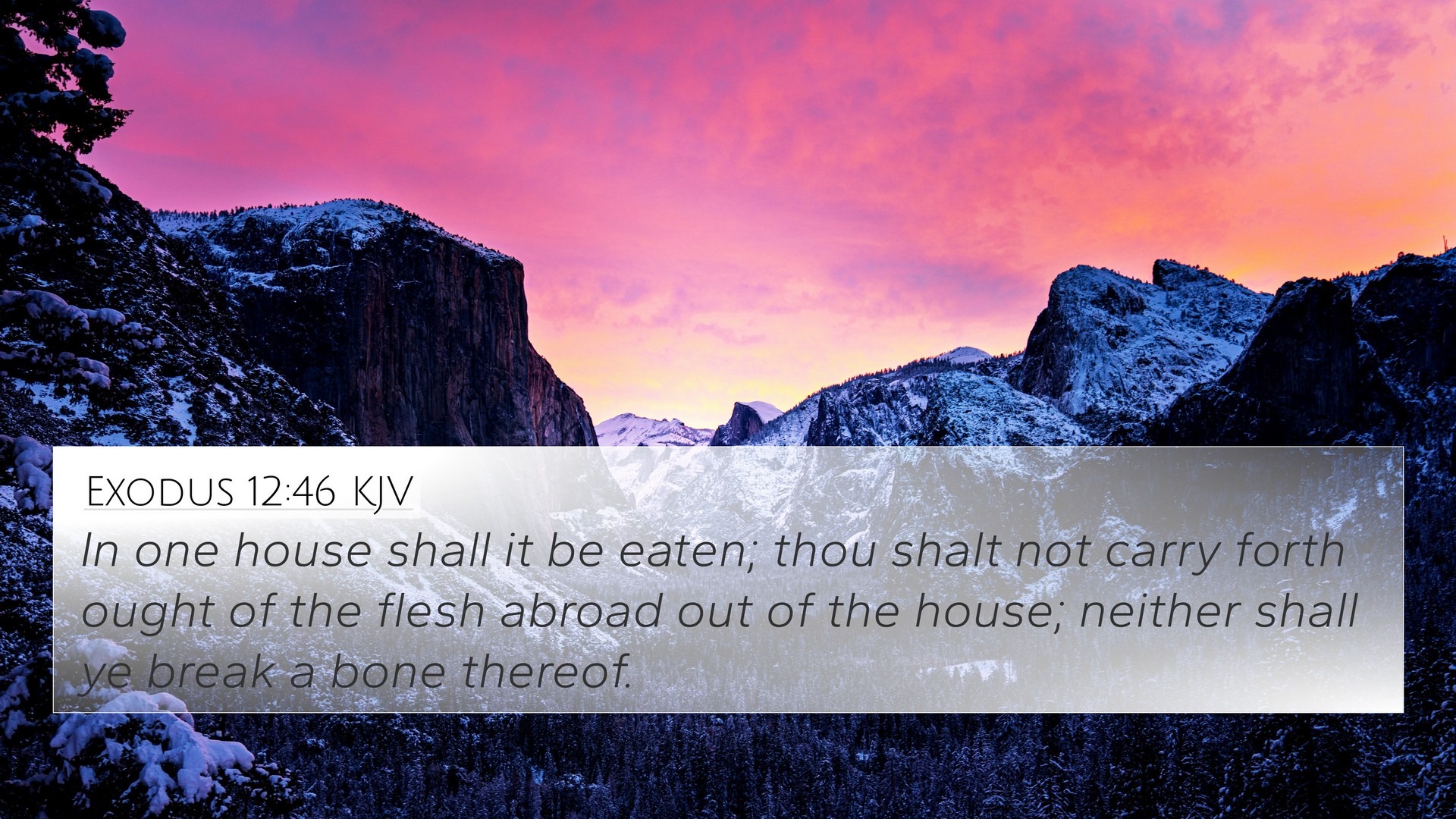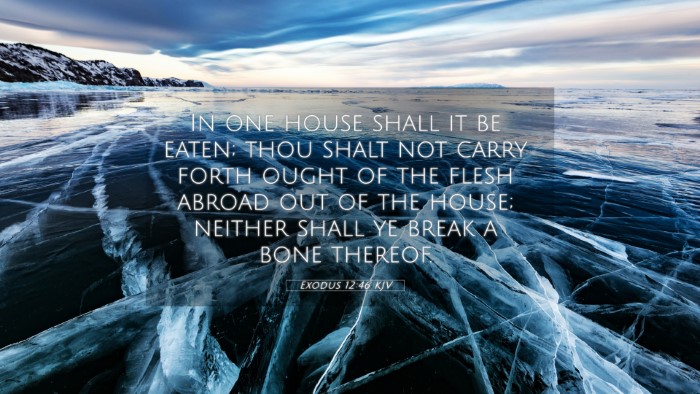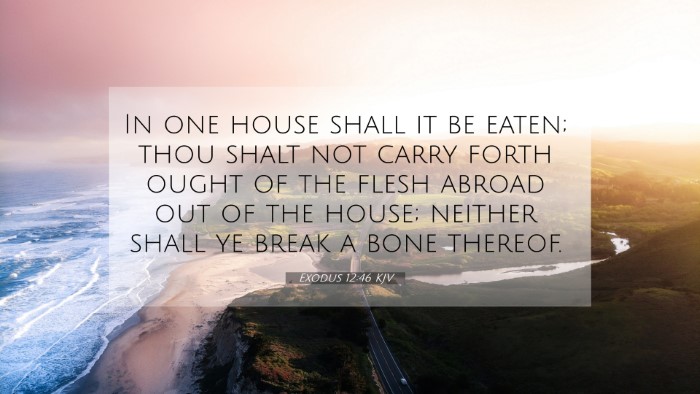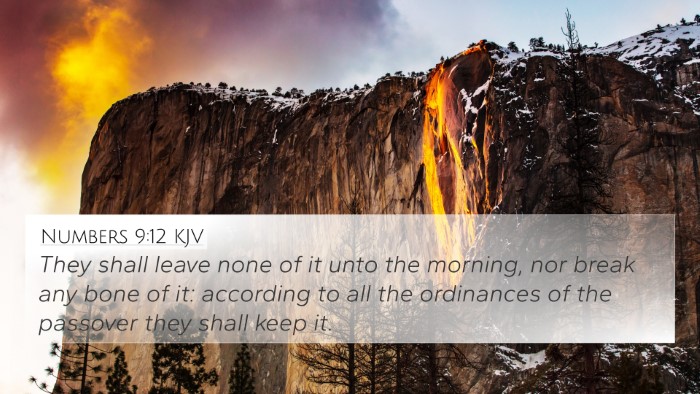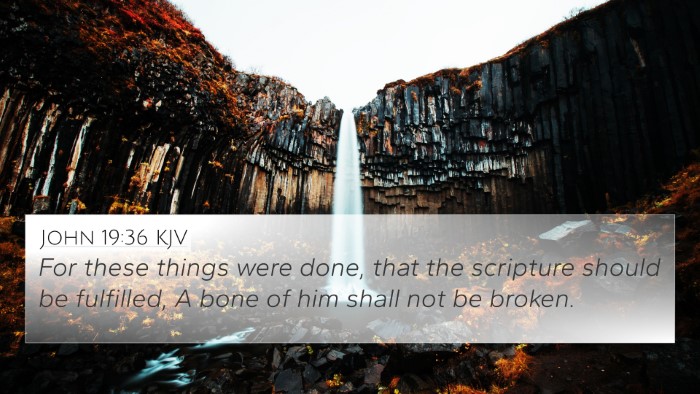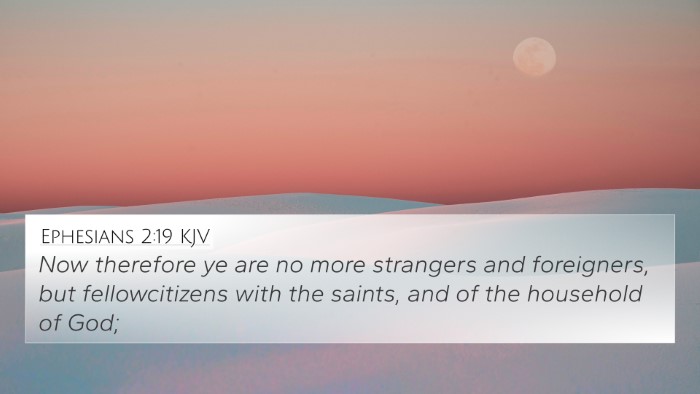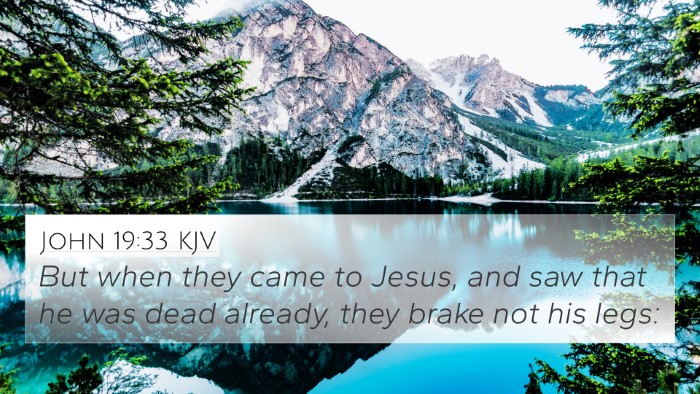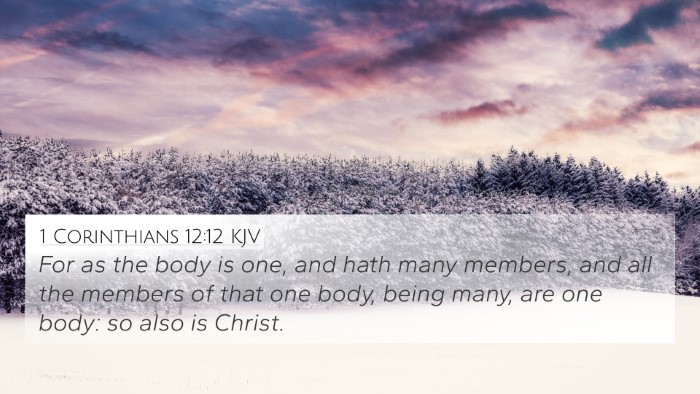Understanding Exodus 12:46
Exodus 12:46 states: "In one house shall it be eaten; thou shalt not carry forth ought of the flesh abroad out of the house; neither shall ye break a bone thereof." This verse is part of the instructions regarding the Passover lamb, which bore great significance in the salvation narrative of Israel during their time in Egypt.
Context of the Verse
This command was given to the Israelites as they prepared to celebrate the Passover, the night when the angel of death passed over the houses of those marked by the blood of the lamb. It symbolizes both physical deliverance from bondage and spiritual redemption.
Interpretation of the Command
- Unity in Eating: The instruction to eat the lamb in one house emphasizes unity and communal participation. It reflects the necessity of being together as a community, signifying that salvation is communal and must be accepted collectively.
- Restriction on Movement: "Thou shalt not carry forth ought of the flesh abroad out of the house" suggests that the lamb was to be fully consumed within the home. This signifies that the benefits of the Passover cannot be taken casually out into the world, but instead are to be experienced directly within the context of faith.
- Unbroken Bones: Not breaking a bone of the lamb points toward the significance of Jesus Christ as the ultimate Passover Lamb. This connects to John 19:36, where it says none of His bones were broken during crucifixion, fulfilling the prophetic nature of Exodus 12:46.
Thematic Connections
Exodus 12:46 is rich with themes that interlink with various other scriptural passages:
- Redemption and Sacrifice: This verse connects deeply with themes of redemption, reflected in John 1:29 ("Behold the Lamb of God, which taketh away the sin of the world") and 1 Peter 1:19 ("But with the precious blood of Christ, as of a lamb without blemish and without spot").
- Breaking of Bones: Not breaking the bones of the Passover lamb relates to Psalms 34:20 ("He keepeth all his bones: not one of them is broken").
- Community of Faith: The unity required in observing the Passover can be seen mirrored in 1 Corinthians 10:16-17, where Paul speaks about the unity of believers sharing in the body of Christ.
Cross-References for Deeper Understanding
For those studying Exodus 12:46, here are some essential cross-references:
- John 1:29 - The identification of Jesus as the ultimate sacrificial lamb.
- 1 Peter 1:19 - The attributes of Christ's sacrifice as that of a blemish-free lamb.
- Numbers 9:12 - Instructions related to the Passover observance.
- Psalms 34:20 - Connection to the unbroken nature of the sacrificial lamb.
- Mark 14:12 - The preparation of the Passover meal during Jesus' time.
- Luke 22:15 - Jesus referencing the Passover as significant in His Last Supper.
- Revelation 5:6 - The imagery of Jesus as the Lamb in the divine presentation.
Conclusion
In conclusion, Exodus 12:46 serves not just as a historical command for the Israelites, but also resonates through the ages as a profound symbol of unity, sacrifice, and the divine plan of redemption fulfilled in Christ. The connections created via biblical cross-referencing enrich the understanding of this verse and its exhaustive implications on the Christian faith.
Cross-Referencing the Bible
Understanding the connections between Bible verses is essential for deepening your faith. Tools for Bible cross-referencing, including a Bible concordance, help illuminate these interconnected themes. By engaging in comparative Bible verse analysis and utilizing a Bible cross-reference guide, readers can enhance their understanding of scriptural text.
Exploring the Importance of Cross-Referencing
- How to find cross-references in the Bible: Start with familiar verses and use cross-reference systems found in many Bibles.
- Identifying connections between the Old and New Testament: Look for themes like sacrifice, redemption, and prophecy fulfillment.
- Bible verses related to specific themes: Use thematic searches to gather verses that discuss similar topics.
Further Resources on Cross-Referencing
To enhance your journey in understanding scriptural cross-references, consider the following:
- Cross-referencing Bible study methods: Engaging in systematic study helps to deepen knowledge.
- Bible reference resources: Various commentaries and guides provide context and cross-reference assistance.
- Cross-reference Bible study for sermon preparation: Finding links between passages can aid in developing impactful sermons.
